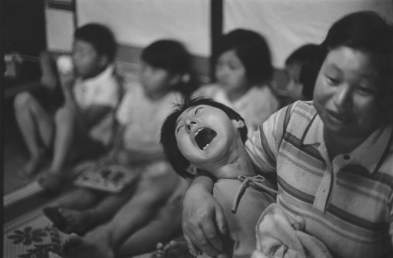Right during its economic miracle in the late 60s – early 70s, Japan faced a terror called The Disaster of Minamata, a large-scale methylmercury poisoning caused by the daily consumption of large quantities of fish and shellfish that were heavily contaminated from Minamata Bay. The disease was first discovered in Minamata, Kumamoto Prefecture in 1956 (which became the first disease in humans caused by exposure to contaminated plants and animals). In 1968, the Japanese government officially announced that the disease was caused by Chisso Corporation, polluting Minamata Bay with its mercury-contaminated wastewater discharge. As stated by Japanese scientists, the Minamata disease was as frightening as the atomic bombings of Hiroshima and Nagasaki.

(Nguồn ảnh: Sưu tập)
For a long period from 1932 to 1958, Chisso Corporation had been discharging an enormous amount of wastewater into Minamata Bay, Kumamoto Prefecture. Until 1968 when the factory was shut down, the wastewater discharged into Minamata Bay had completely turned the place into a dead bay. According to recent studies, 0.6-6 tons of untreated mercury were discharged into Minamata Bay by the Chisso factory separately. And the danger of the disease is still being studied to this day.
The Minamata disease leaves numerous fatal consequences depending on poisoning severity. Severely poisoned patients often scream in pain, convulse, and are often paralyzed. Some become blind, deaf or go insane, while people with milder symptoms experienced severe uncontrollable tremors and loss of sensation and balance. Women poisoned with methylmercury during pregnancy have an increased risk of giving birth to infants with cerebral palsy, sensory loss affecting both auditory and visual senses and growth problems with physical and mental health.
How many people were affected?

(Nguồn ảnh: Sưu tập)
According to the Japanese government, to this day, there were 12.890 victims of the Minamata disease reported. However, the report only showed the statistical data based on officially approved letters by the government. The actual number of victims is believed to be much since many might have been dead before the disease was officially announced or before they could apply to be approved, or some may have decided not to apply for certain reasons.
The burden of the Minamata disaster:
Economic damage: The total amount of compensation for victims affected by the Minamata disease and the money used to clean up Minamata bay can be up to 308.5 billion yen (equivalent to approx. 2.829 billion USD). Of which, 260 billion yen is how much Chisso Corporation had to compensate victims, and 48.5 billion yen is the amount Kumamoto prefecture had to spend on dredging and cleaning up the bed of Minamata bay.
Social burden: As pointed out above, the total number of victims of the Minamata disease must be greater than 12.890 people, most of them lost their cognitive ability, have difficulty walking, and have to rely completely on their parents. There is still no cure for the Minamata disease.
Most patients have to go to the hospital daily for treatment and recovery. Now as patients are becoming older, the number of people who need to be hospitalized or need help at home is also increasing. In the aging society of Japan, the burden from these patients is rather considerable.
Soure: Water Resources Conservation Kit: Applying for middle school students


 Tiếng Việt
Tiếng Việt
